Eczema is a group of skin conditions that causes areas of skin to become itchy, dry, cracked, sore and irritated.
Babies, children and adults can get eczema. You can also get eczema for the first time as you get older.
Symptoms of eczema
Eczema can be different for everyone. The symptoms are:
- dryness
- redness (inflammation)
- itching
You may only have small areas of dry skin that are itchy every now and again.
You may have a lot of inflamed skin all over your body. You may also have constant itching.
Where on your body you can get eczema
Eczema can happen anywhere on your body.
It's more common on your hands (especially fingers), the insides of the elbows or backs of the knees.
You can also get it on your face and scalp.
Changes to skin colour
Part of your skin affected by eczema may also change colour. This can happen after your eczema gets better.
People with black or brown skin are more likely to notice this change. In time your skin will return to its normal colour.
Eczema flare-ups
Symptoms may go away or get better for a time. But flare-ups can happen at any time. This is where symptoms come back or get worse. Flare-ups may happen as often as 2 or 3 times a month.
The itch-scratch cycle
Itchy skin is a symptom of eczema.
Try not to scratch your skin when it is itching. You may get into a cycle of scratching your itchy skin.
Scratching your skin can:
- make itching worse
- make your skin bleed
- cause other infections
This can make it difficult to sleep. It can also make it difficult to concentrate.
How you can cause less damage to your skin
Risk of infection
Your skin has a higher risk of infection where you have eczema. This can drive a flare up of eczema.
Some of the signs of an infection:
- your eczema is a lot worse
- fluid oozing from your skin
- a yellow crust on the surface of your skin or seeing small yellowish-white spots in the eczema
- your skin is swollen and sore
- a high temperature (fever) and not feeling well
Talk to your GP as soon as possible if you think you or your child's skin is infected.
Urgent advice: Ask for an urgent GP appointment if you:
- have areas of painful eczema that quickly get worse
- have groups of fluid-filled blisters that break open and leave small, shallow open sores on the skin
- feel hot and shivery - and in some cases feel unwell
These are signs of eczema herpeticum.
If you cannot contact a GP, go to your nearest hospital.
If you're diagnosed with eczema herpeticum, you'll be given an antiviral medicine called aciclovir.
Types of eczema
There are many different types of eczema.
Atopic eczema (dermatitis)
The main type of eczema is sometimes called dermatitis or atopic eczema. It affects 2 in 10 children and 1 in 10 adults. There is usually a family history and people who have atopic eczema are likely to get asthma or hay fever too.
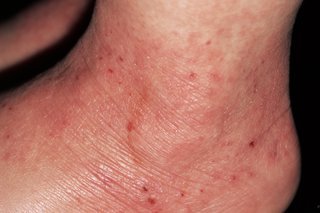
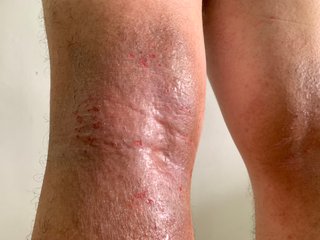
Discoid eczema
Also known as nummular eczema and discoid dermatitis. You get circular or oval patches of eczema on your skin.
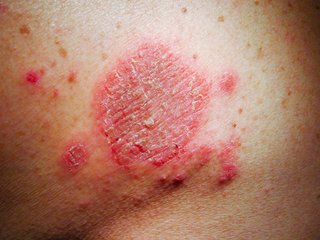
Contact dermatitis
This happens when your skin touches something that triggers your eczema.
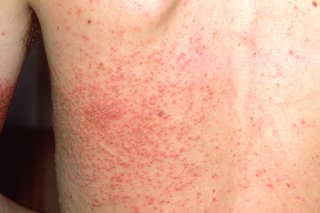
Varicose eczema
Also known as venous or stasis eczema it usually affects your lower legs. It happens because there are problems with the flow of blood through your leg veins. This is more common in people age 65 and older.
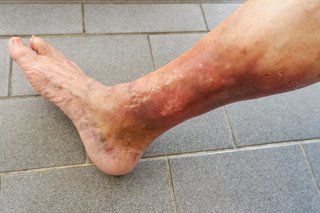
Dyshidrotic eczema (pompholyx)
Tiny blisters break out across the palms of your hands and the sides of your fingers.
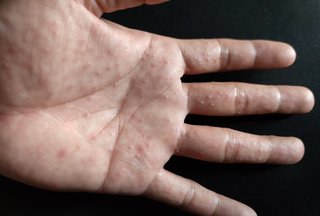
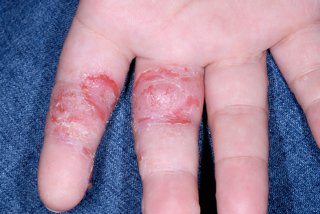
Diagnosing eczema
Your GP will be able to tell if you have eczema by looking at your skin. There is no test for eczema.
